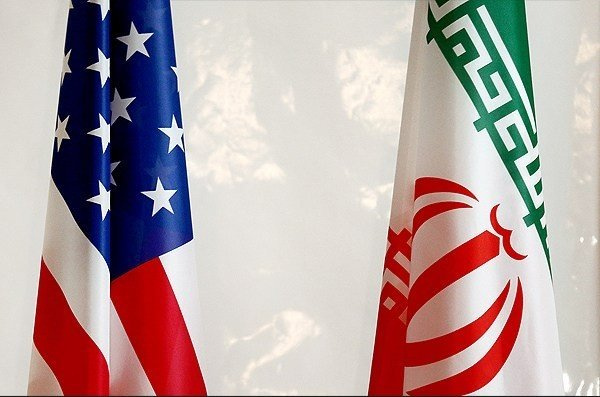The Case For a US-Iran Mini Deal

Over the past three years, US-Iran relations have remained consistently tense and frozen in a disconcerting state of cold hostility, occasionally tilting in the contradictory directions - of a potential deal and potential conflict. The overall ebbs and flows of their bilateral diplomacy thus shows the strains of being hampered by the lack of real progress, despite the contrary signs of willingness by both sides to de-escalate tensions and, perhaps, even reach a deal.
But what is the nature of such a deal, and why does it fall apart whenever it seems within reach and its fruition imminent? This question indeed goes to the heart of complexities of a troubled relations that is deeply influenced by a plethora of third parties, exigencies of domestic politics, and leadership preferences often at odds with each other, thus rendering the resurrection of the Iran nuclear deal nearly impossible, in light of the recent admission by the US Secretary of State Anthony Blinken that the US is no longer looking to revive the agreement, known as the Joint Comprehensive Plan of Action (JCPOA), in turn raising the question of what then is US is actually hoping to gain in this arduous path of diplomacy with Iran?
One of the salient features of this frozen diplomacy is that is organically connected to both the military equation and the related crises, particularly the Arab-Israeli conflict and the war in Ukraine. With respect to the former, Iran has deliberately inserted itself in that conflict, as a champion of Palestinian rights, even though it is an open question if that fits in with Iran's national security interests. But, unfortunately, the latter is a bigger problem right now, and Iran in the international arena has paid a huge price for appearing to be aligning itself with President Vladimir Putin's military intervention in neighboring Ukraine, thus incurring Western hostility. But, by all indications, Iran has refrained from providing missiles to Russia and, in turn, it is perfectly possible that Moscow has had second thoughts about providing Iran with sophisticated fighter jets as a result. What is clear, however, is that much remains in a state of flux and the Iranian foreign diplomacy is deeply impacted by the Western perception of Iran's role in backing Russia's war with Ukraine, irrespective of Iran's official neutrality.
Hence, in terms of the bilateral US-Iran diplomacy, a great deal needs to be clarified by both sides in terms of their involvement in the Ukraine war and how to insulate this diplomacy from the fluctuations of that perilous war. At the same time, the Ukraine war represents a potential leverage for Iran, insofar as the Biden administration is keen on not adding another crisis on its boilerplate, with its hands full with Russia deterrence in Ukraine. In a word, crisis-prevention is a top priority on both sides, which in turn creates the necessary synergy for a potential mini-deal.
Yet, in spite of such a synergy, the US military build-up in Persian Gulf, ostensibly to protect free shipping vis-a-vis Iranian interference, indicates that the military card is very much in play here and is used to bolster US's leverage toward Iran. Iran containment can, of course, rather easily get out of hand and culminate in an actual confrontation, if both sides are not careful. Questions regarding US's intention behind this military build-up abound and, at this stage, it is unclear if this means the Biden administration has given up on the hope of reaching a deal with Iran, or simply resorting to a more muscular diplomatic approach toward Iran. Is one of the purposes to pressure Iran to decouple itself from Russia in Ukraine, or is it simply a function of US-Iran tensions? Another related question is: who, and which branch of the US government, now leads the Iran policy? State Department, National Security Council, or the Pentagon? And, indeed, what role is the White House itself playing in formulating a sound Iran policy that, at the moment, appears to be drifting in contradictory directions above-mentioned? In light of the recent demise of Biden's Special Envoy on Iran, Robert Malley, who is close to Blinken, and one would assume also Wendy Sherman, the Deputy Secretary of State and an ardent fan of the JCPOA, chances are that Iran's file is now in the hands of the more hardline National Security Advisor, Jake Sullivan, whose deputy has been holding talks with the Iranian officials per media reports. Does this mean that Blinken is edged out of the Iran policy now, and if so, what does Mr. Sullivan have in mind in terms of steering a successful Iran plan in the proximate future? The familiar carrot and stick approach must ultimately tilt in one or another direction and the sooner the better, given the Western and Israeli worries about Iran's proliferation potential and the current proto-nuclear status.
Looking through the darkly glass, it is possible to detect a silver lining through all the negative news: A mini-deal, whereby Iran agrees to a verifiable ceiling on its nuclear activities in exchange for sanctions relief and the like, is perfectly possible, should the leadership in both sides reign in on their respective hardliners and follow the dictates of diplomatic pragmatism, for the sake of conflict avoidance, regional tranquility, and also breaking some ice in the glacier of US-Iran hostility. Of course, it is sheer idealism to think that the immense glacier of dividing interests can melt overnight, but the advantage of a mutually-beneficial min-deal is that it builds on a zone of shared interests and also fills the hiatus of confidence-building, i.e., a sine qua non for a meaningful progress vis-a-vis the frozen relations.

